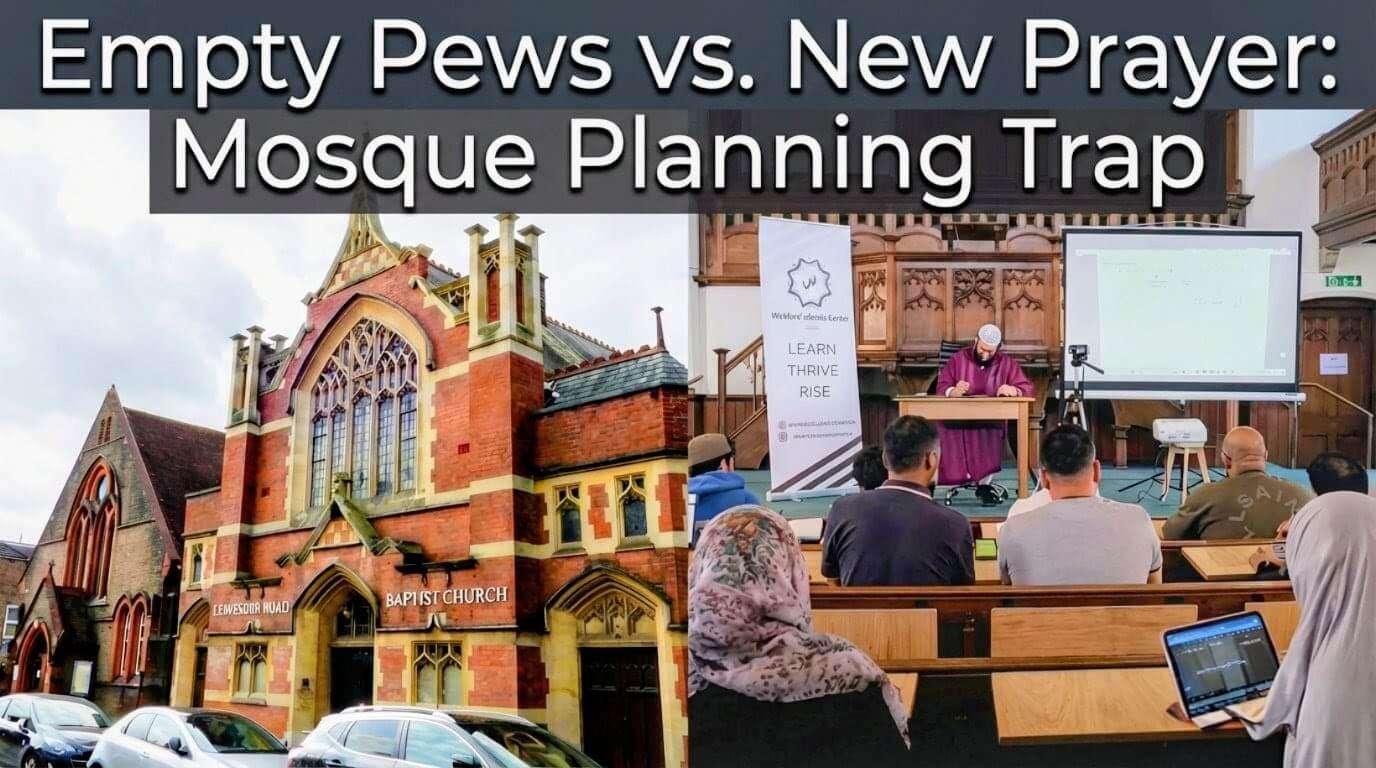[caption id="attachment_1335" align="alignleft" width="800"]
 Exchange Companies Association president anticipated that the rupee would partially recoup losses over the next couple of days on expectations of easing political tensions.
Exchange Companies Association president anticipated that the rupee would partially recoup losses over the next couple of days on expectations of easing political tensions.[/caption]
Due to the economic recession, the financial world experienced a significant fall in 2008, which led to the loss of thousands of qualified professionals' jobs.
I also found myself out of a job, and when I saw how many people were impacted by the devastating economic crisis, my sense of hopelessness intensified.
With a child on the way and collapsing financial markets that had already arrived, I made the difficult decision of leaving my homeland and join my former co-workers who had moved to the Middle East in the hope of a better future. In 2011, I gambled on my future and took off to Dubai.
The initial sense of calm and security I found in Dubai helped ease my anxieties about the future. It presented me with opportunities that aligned with my skills and provided the financial freedom I had wished for.
As a result of this progress and being a “desi” at heart, I made the decision to invest in property in Pakistan in 2017. At that time, the exchange rate was favourable, and the stories of soaring property values in my home country only fueled my excitement.
I envisioned a prosperous future and the possibility of eventually returning to Pakistan with financial stability.
However, in our enthusiasm for positive change in Pakistan, we overlooked a critical factor – the risk of currency devaluation.
While the property did appreciate in Pakistani rupees (PKR), its significance was overshadowed by the depreciation of the PKR against foreign currencies. To our disappointment, we discovered that the property’s appreciation was outweighed by the currency devaluation. The bubble had burst, and our investments lost value right before our eyes.
This realisation came as a shock, as we had placed our hopes and dreams in the property, expecting it to provide us with financial security and a strong foundation for the future. Yet, the impact of currency devaluation towed away the gains we had anticipated, leaving us questioning our investment decisions.
This experience serves as a valuable lesson about the complexities of investing and the need for a comprehensive understanding of the factors that can influence returns.
While property investments can be lucrative, it is crucial to consider the broader economic context, including currency fluctuations and their potential impact on the value of investments.
Moreover, if your hard-earned assets are not denominated in the depreciating currency (PKR), the impact of currency devaluation can be even more significant.
For individuals who have earned their money in a stronger currency, such as the US dollar or euro, the devaluation of the local currency (PKR) can dramatically diminish the value of their investments and savings.
This scenario can be particularly challenging for individuals who have accumulated significant savings or made long-term investments in their home country. The loss in value can be disheartening, as the gains they had anticipated may be reduced to mere pennies compared to their initial expectations.
It is widely known that traveling freely on a Pakistani passport poses significant challenges. Pakistani passport holders often face limitations and restrictions when it comes to visa-free travel and visa approvals from many countries around the world.
The difficulties in obtaining visas and the scrutiny placed on Pakistani passport holders can be frustrating and discouraging.
There are several factors that contribute to the challenges faced by Pakistani passport holders. These include geopolitical considerations, security concerns, economic factors, and diplomatic relationships between countries.
Governments assess various criteria when evaluating visa applications, such as the applicant’s travel history, financial stability, purpose of travel, and ties to their home country. Unfortunately, negative perceptions associated with Pakistani passports can result in heightened scrutiny and stricter requirements for obtaining visas
Having faced challenges with visa applications for western countries despite my professional position and residency in Dubai, it became clear that a positive travel history was also a crucial factor in obtaining visas. The ability to demonstrate a good travel record, along with financial backing and the ability to cover expenses adequately, seemed to be prerequisites for visa approvals.
Fortunately, in 2018, my family and I made the decision to move to the United States of America. Learning from our previous experiences, we hoped that this new chapter in our lives would bring stability and enable us to make the most of our hard-earned assets.
However, the unfortunate reality was that the devaluation of the currency had wind-swept a significant portion of the funds we had allocated for purchasing our property in Pakistan. The gains we had anticipated were now only a fraction of the losses incurred due to currency devaluation.
In summary, the journey depicted in this article sheds light on the experiences of overseas Pakistanis who are often perceived as wealthy and resourceful by residents in their home country.
However, the decision to leave their homeland and seek a livelihood elsewhere requires immense courage. It is not merely a battle for career advancement; it encompasses a multitude of emotions.
It is disheartening for overseas Pakistanis to witness the economy of their home country deteriorating while feeling helpless to effect change.
Leaving one’s home behind and embarking on a journey to a foreign land involves sacrifices, including leaving loved ones behind and uprooting one’s life. The decision is driven by the aspiration for a better future, both financially and professionally.
However, it is important to acknowledge that this decision is not without its challenges and emotional toll.
Moreover, witnessing the economic struggles of their home country from afar can be devastating. Overseas Pakistanis often possess a deep connection and sense of responsibility towards their homeland.
Seeing the economy in decline and feeling powerless to contribute to its improvement can be a source of frustration and sadness.
Despite these challenges, overseas Pakistanis continue to navigate their journeys with resilience and determination. They contribute significantly to the economies of their host countries through their skills, hard work, and dedication.
Many also support their families back home through remittances, which play a vital role in supporting the local economy.
It is important for society to recognise the sacrifices and emotional turmoil faced by overseas Pakistanis. By understanding their experiences and acknowledging their contributions, we can foster empathy, support, and appreciation for their efforts.
The writer is a trainer for leadership and motivation at Elite Institute, Dallas and is a marketing professional who is passionate about real estate development and e-business transformations
 Exchange Companies Association president anticipated that the rupee would partially recoup losses over the next couple of days on expectations of easing political tensions.[/caption]
Due to the economic recession, the financial world experienced a significant fall in 2008, which led to the loss of thousands of qualified professionals' jobs.
I also found myself out of a job, and when I saw how many people were impacted by the devastating economic crisis, my sense of hopelessness intensified.
With a child on the way and collapsing financial markets that had already arrived, I made the difficult decision of leaving my homeland and join my former co-workers who had moved to the Middle East in the hope of a better future. In 2011, I gambled on my future and took off to Dubai.
The initial sense of calm and security I found in Dubai helped ease my anxieties about the future. It presented me with opportunities that aligned with my skills and provided the financial freedom I had wished for.
As a result of this progress and being a “desi” at heart, I made the decision to invest in property in Pakistan in 2017. At that time, the exchange rate was favourable, and the stories of soaring property values in my home country only fueled my excitement.
I envisioned a prosperous future and the possibility of eventually returning to Pakistan with financial stability.
However, in our enthusiasm for positive change in Pakistan, we overlooked a critical factor – the risk of currency devaluation.
While the property did appreciate in Pakistani rupees (PKR), its significance was overshadowed by the depreciation of the PKR against foreign currencies. To our disappointment, we discovered that the property’s appreciation was outweighed by the currency devaluation. The bubble had burst, and our investments lost value right before our eyes.
This realisation came as a shock, as we had placed our hopes and dreams in the property, expecting it to provide us with financial security and a strong foundation for the future. Yet, the impact of currency devaluation towed away the gains we had anticipated, leaving us questioning our investment decisions.
This experience serves as a valuable lesson about the complexities of investing and the need for a comprehensive understanding of the factors that can influence returns.
While property investments can be lucrative, it is crucial to consider the broader economic context, including currency fluctuations and their potential impact on the value of investments.
Moreover, if your hard-earned assets are not denominated in the depreciating currency (PKR), the impact of currency devaluation can be even more significant.
For individuals who have earned their money in a stronger currency, such as the US dollar or euro, the devaluation of the local currency (PKR) can dramatically diminish the value of their investments and savings.
This scenario can be particularly challenging for individuals who have accumulated significant savings or made long-term investments in their home country. The loss in value can be disheartening, as the gains they had anticipated may be reduced to mere pennies compared to their initial expectations.
It is widely known that traveling freely on a Pakistani passport poses significant challenges. Pakistani passport holders often face limitations and restrictions when it comes to visa-free travel and visa approvals from many countries around the world.
The difficulties in obtaining visas and the scrutiny placed on Pakistani passport holders can be frustrating and discouraging.
There are several factors that contribute to the challenges faced by Pakistani passport holders. These include geopolitical considerations, security concerns, economic factors, and diplomatic relationships between countries.
Governments assess various criteria when evaluating visa applications, such as the applicant’s travel history, financial stability, purpose of travel, and ties to their home country. Unfortunately, negative perceptions associated with Pakistani passports can result in heightened scrutiny and stricter requirements for obtaining visas
Having faced challenges with visa applications for western countries despite my professional position and residency in Dubai, it became clear that a positive travel history was also a crucial factor in obtaining visas. The ability to demonstrate a good travel record, along with financial backing and the ability to cover expenses adequately, seemed to be prerequisites for visa approvals.
Fortunately, in 2018, my family and I made the decision to move to the United States of America. Learning from our previous experiences, we hoped that this new chapter in our lives would bring stability and enable us to make the most of our hard-earned assets.
However, the unfortunate reality was that the devaluation of the currency had wind-swept a significant portion of the funds we had allocated for purchasing our property in Pakistan. The gains we had anticipated were now only a fraction of the losses incurred due to currency devaluation.
In summary, the journey depicted in this article sheds light on the experiences of overseas Pakistanis who are often perceived as wealthy and resourceful by residents in their home country.
However, the decision to leave their homeland and seek a livelihood elsewhere requires immense courage. It is not merely a battle for career advancement; it encompasses a multitude of emotions.
It is disheartening for overseas Pakistanis to witness the economy of their home country deteriorating while feeling helpless to effect change.
Leaving one’s home behind and embarking on a journey to a foreign land involves sacrifices, including leaving loved ones behind and uprooting one’s life. The decision is driven by the aspiration for a better future, both financially and professionally.
However, it is important to acknowledge that this decision is not without its challenges and emotional toll.
Moreover, witnessing the economic struggles of their home country from afar can be devastating. Overseas Pakistanis often possess a deep connection and sense of responsibility towards their homeland.
Seeing the economy in decline and feeling powerless to contribute to its improvement can be a source of frustration and sadness.
Despite these challenges, overseas Pakistanis continue to navigate their journeys with resilience and determination. They contribute significantly to the economies of their host countries through their skills, hard work, and dedication.
Many also support their families back home through remittances, which play a vital role in supporting the local economy.
It is important for society to recognise the sacrifices and emotional turmoil faced by overseas Pakistanis. By understanding their experiences and acknowledging their contributions, we can foster empathy, support, and appreciation for their efforts.
The writer is a trainer for leadership and motivation at Elite Institute, Dallas and is a marketing professional who is passionate about real estate development and e-business transformations
Exchange Companies Association president anticipated that the rupee would partially recoup losses over the next couple of days on expectations of easing political tensions.[/caption]
Due to the economic recession, the financial world experienced a significant fall in 2008, which led to the loss of thousands of qualified professionals' jobs.
I also found myself out of a job, and when I saw how many people were impacted by the devastating economic crisis, my sense of hopelessness intensified.
With a child on the way and collapsing financial markets that had already arrived, I made the difficult decision of leaving my homeland and join my former co-workers who had moved to the Middle East in the hope of a better future. In 2011, I gambled on my future and took off to Dubai.
The initial sense of calm and security I found in Dubai helped ease my anxieties about the future. It presented me with opportunities that aligned with my skills and provided the financial freedom I had wished for.
As a result of this progress and being a “desi” at heart, I made the decision to invest in property in Pakistan in 2017. At that time, the exchange rate was favourable, and the stories of soaring property values in my home country only fueled my excitement.
I envisioned a prosperous future and the possibility of eventually returning to Pakistan with financial stability.
However, in our enthusiasm for positive change in Pakistan, we overlooked a critical factor – the risk of currency devaluation.
While the property did appreciate in Pakistani rupees (PKR), its significance was overshadowed by the depreciation of the PKR against foreign currencies. To our disappointment, we discovered that the property’s appreciation was outweighed by the currency devaluation. The bubble had burst, and our investments lost value right before our eyes.
This realisation came as a shock, as we had placed our hopes and dreams in the property, expecting it to provide us with financial security and a strong foundation for the future. Yet, the impact of currency devaluation towed away the gains we had anticipated, leaving us questioning our investment decisions.
This experience serves as a valuable lesson about the complexities of investing and the need for a comprehensive understanding of the factors that can influence returns.
While property investments can be lucrative, it is crucial to consider the broader economic context, including currency fluctuations and their potential impact on the value of investments.
Moreover, if your hard-earned assets are not denominated in the depreciating currency (PKR), the impact of currency devaluation can be even more significant.
For individuals who have earned their money in a stronger currency, such as the US dollar or euro, the devaluation of the local currency (PKR) can dramatically diminish the value of their investments and savings.
This scenario can be particularly challenging for individuals who have accumulated significant savings or made long-term investments in their home country. The loss in value can be disheartening, as the gains they had anticipated may be reduced to mere pennies compared to their initial expectations.
It is widely known that traveling freely on a Pakistani passport poses significant challenges. Pakistani passport holders often face limitations and restrictions when it comes to visa-free travel and visa approvals from many countries around the world.
The difficulties in obtaining visas and the scrutiny placed on Pakistani passport holders can be frustrating and discouraging.
There are several factors that contribute to the challenges faced by Pakistani passport holders. These include geopolitical considerations, security concerns, economic factors, and diplomatic relationships between countries.
Governments assess various criteria when evaluating visa applications, such as the applicant’s travel history, financial stability, purpose of travel, and ties to their home country. Unfortunately, negative perceptions associated with Pakistani passports can result in heightened scrutiny and stricter requirements for obtaining visas
Having faced challenges with visa applications for western countries despite my professional position and residency in Dubai, it became clear that a positive travel history was also a crucial factor in obtaining visas. The ability to demonstrate a good travel record, along with financial backing and the ability to cover expenses adequately, seemed to be prerequisites for visa approvals.
Fortunately, in 2018, my family and I made the decision to move to the United States of America. Learning from our previous experiences, we hoped that this new chapter in our lives would bring stability and enable us to make the most of our hard-earned assets.
However, the unfortunate reality was that the devaluation of the currency had wind-swept a significant portion of the funds we had allocated for purchasing our property in Pakistan. The gains we had anticipated were now only a fraction of the losses incurred due to currency devaluation.
In summary, the journey depicted in this article sheds light on the experiences of overseas Pakistanis who are often perceived as wealthy and resourceful by residents in their home country.
However, the decision to leave their homeland and seek a livelihood elsewhere requires immense courage. It is not merely a battle for career advancement; it encompasses a multitude of emotions.
It is disheartening for overseas Pakistanis to witness the economy of their home country deteriorating while feeling helpless to effect change.
Leaving one’s home behind and embarking on a journey to a foreign land involves sacrifices, including leaving loved ones behind and uprooting one’s life. The decision is driven by the aspiration for a better future, both financially and professionally.
However, it is important to acknowledge that this decision is not without its challenges and emotional toll.
Moreover, witnessing the economic struggles of their home country from afar can be devastating. Overseas Pakistanis often possess a deep connection and sense of responsibility towards their homeland.
Seeing the economy in decline and feeling powerless to contribute to its improvement can be a source of frustration and sadness.
Despite these challenges, overseas Pakistanis continue to navigate their journeys with resilience and determination. They contribute significantly to the economies of their host countries through their skills, hard work, and dedication.
Many also support their families back home through remittances, which play a vital role in supporting the local economy.
It is important for society to recognise the sacrifices and emotional turmoil faced by overseas Pakistanis. By understanding their experiences and acknowledging their contributions, we can foster empathy, support, and appreciation for their efforts.
The writer is a trainer for leadership and motivation at Elite Institute, Dallas and is a marketing professional who is passionate about real estate development and e-business transformations







.svg)

